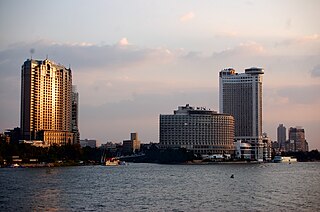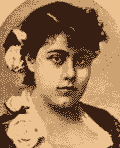
Muhammad was the founder of Islam. According to Islamic doctrine, he was a prophet, sent to present and confirm the monotheistic teachings preached previously by Adam, Abraham, Moses, Jesus, and other prophets. He is viewed as the final prophet of God in all the main branches of Islam, though some modern denominations diverge from this belief. Muhammad united Arabia into a single Muslim polity, with the Quran as well as his teachings and practices forming the basis of Islamic religious belief.

Shia Islam is one of the two main branches of Islam. It holds that the Islamic prophet Muhammad designated Ali ibn Abi Talib as his successor and the Imam (leader) after him, most notably at the event of Ghadir Khumm, but was prevented from the caliphate as a result of the incident of Saqifah. This view primarily contrasts with that of Sunni Islam, whose adherents believe that Muhammad did not appoint a successor and consider Abu Bakr, who they claim was appointed caliph by a small group of Muslims at Saqifah, to be the first rightful caliph after the Prophet.
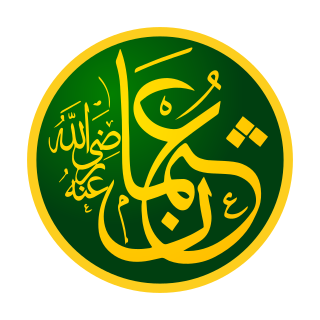
Uthman ibn Affan, also known in English by the Turkish and Persian rendering Osman, was a son-in-law and notable companion of the Islamic prophet Muhammad, the third of the Rashidun, or "Rightly Guided Caliphs". Born into a prominent Meccan clan, Banu Umayya of the Quraysh tribe, he played a major role in early Islamic history, and is known for having ordered the compilation of the standard version of the Quran. When Caliph Umar ibn al-Khattab died in office aged 59/60 years, ʿUthmān, aged 64/65 years, succeeded him and was the second-oldest to rule as Caliph.
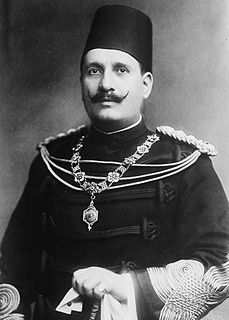
Fuad I was the Sultan and later King of Egypt and Sudan, Sovereign of Nubia, Kordofan, and Darfur. The ninth ruler of Egypt and Sudan from the Muhammad Ali dynasty, he became Sultan of Egypt and Sudan in 1917, succeeding his elder brother Sultan Hussein Kamel. He substituted the title of King for Sultan when the United Kingdom recognised Egyptian independence in 1922. His name is sometimes spelled Fouad.

Fawzia Fuad of Egypt, also known as Muluk Fawzia of Iran, was an Egyptian princess who became Queen of Iran as the first wife of Mohammad Reza Pahlavi.
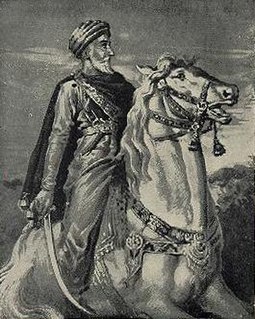
Hassan-i Sabbāh or Hassan as-Sabbāh was the leader of the Nizārī Ismā‘īlītes and the founder of the order known as Assassins. Assassins, who are often referred to as the Hashshashin, was a group of fedayeen.

A mazār is a mausoleum or shrine in some places of the world, typically that of a saint or notable religious leader. Medieval Arabic texts may also use the words mašhad, maqām or ḍarīḥ to denote the same concept. Another synonymous term mostly used in Palestine and in older Western scholarly literature is wali or weli.
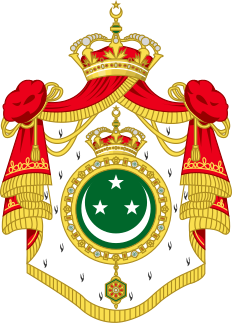
The Muhammad Ali dynasty was the ruling dynasty of Egypt and Sudan from the 19th to the mid-20th century. It is named after its progenitor, Muhammad Ali Pasha, regarded as the founder of modern Egypt. It was also more formally known as the Alawiyya dynasty. Because a majority of the rulers from this dynasty bore the title Khedive, it was often referred to by contemporaries as the 'Khedival dynasty'.
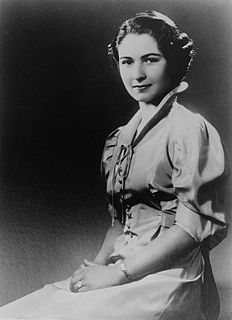
Queen Farida, born Safinaz Zulficar was the first wife of King Farouk. She was queen of Egypt for nearly eleven years.
Hassan Aziz Hassan was an Egyptian prince. He was one of the last surviving members of the Muhammad Ali Dynasty. He held the title of "El-Nabil", which was also his name at birth. Having been educated in Beirut and England at Leighton Park School, he was a painter and pianist, and was a student and close friend of the expatriate Polish concert pianist Ignaz Tiegerman.
The Turks in Egypt, also referred to as Egyptian Turks, Turkish-Egyptians and Turco-Egyptians are Egyptian citizens of partial or full Turkish ancestry, who are the descendants of settlers that arrived in the region during the rule of several Turkic dynasties, including: the Tulunid (868–905), Ikhshidid (935–969), Zengid (1127–1250), Mamluk (1250–1517), and Ottoman eras. Today their descendants continue to live in Egypt and still identify as Egyptians of Turkish or mixed origin, though they are also fully integrated in Egyptian society.
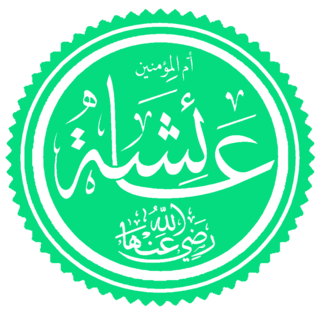
ʿĀʾishah bint Abī Bakr, also transcribed as Aisha or variants, was Muhammad's third and youngest wife. In Islamic writings, her name is thus often prefixed by the title "Mother of the Believers", referring to the description of Muhammad's wives in the Qur'an.

Sheikh Hassan Ahmed Abdel Rahman Muhammed al-Banna, known as Hassan al-Banna, was an Egyptian schoolteacher and imam, best known for founding the Muslim Brotherhood, one of the largest and most influential Islamic revivalist organizations.

Melek Hassan Tourhan was the second wife of Sultan Hussein Kamel of Egypt. After her husband ascended the throne in 1914, she became known as Sultana Melek.
Faiza Fuad Rauf was an Egyptian princess and a member of the Muhammad Ali Dynasty.

Shivakiar Ibrahim was an Egyptian princess and a member of the Muhammad Ali Dynasty. She was the first wife of King Fuad.

Jeshm Afet Hanim was the Princess consort of Khedive Isma'il Pasha of Egypt. She was the adoptive mother of the future Sultana of Egypt Melek Tourhan.
The Albanian community in Egypt started by Ottoman rulers and military personnel appointed in the Egyptian province. A substantial community would grow up later by soldiers and mercenaries who settled in the second half of the 18th century and made a name for themselves in the Ottoman struggle to expel French troops in 1798–1801. Muhammad Ali (1769–1849) founded the Albanian dynasty of Egypt which lasted there until 1952. In the 19th and early 20th centuries, many other Albanians settled into Egypt for economical and political reasons. With the fedayeen, Muslim Brotherhood, and the culminating Egyptian Revolution of 1952 the Albanian community in Egypt diminished.
Hidiya Hanim Barakat (1898–1969) was an Egyptian philanthropist and social worker who worked to improve the welfare of Egyptian people.
